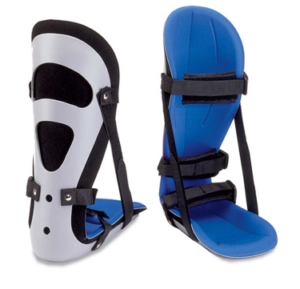Contact Us
What does ‘Medically Necessary’ Mean?
What does ‘Medically Necessary’ Mean?
According to HealthCare.gov, medically necessary services are defined as “health care services or supplies that are needed to diagnose or treat an illness, injury, condition, disease, or it’s symptoms – and that meet accepted standards of medicine”
If you are a Medicare beneficiary, the term ‘medically necessary’ applies to you directly because it refers to services covered or not covered by Medicare.

The Centers for Medicare & Medicaid Services gives some further detail about medically necessary services. According to them, medically necessary services or supplies:
• Proper and needed for the diagnosis or treatment of your medical condition
• Are provided for the diagnosis, direct care, and treatment of your medical condition.
• Meet the standards of good medical practice in the local area and are not mainly for the convenience of you or your doctor.
What determines what is Medically Necessary?
To find out if Medicare covers what you need, talk to your doctor or healthcare provider about why certain services and supplies are necessary. You can visit the official U.S. Government site for Medicare (https://www.medicare.gov/coverage) to find out coverage information.
There is no difference in the definition of “medical necessity” based on whether you are on Medicare vs. Medicaid, however the list of included services in any health plan may vary because the federal government will create the guidelines on some levels, and then the individual provider of the Medicare plan and local state guidelines will also dictate what will be covered
Before getting a medical procedure or tests, you should do your best to understand if it will be covered by your healthcare plan first. The first step is making sure a doctor has approved or requested the necessary treatment or tests. Besides having a doctor’s assessment, you will also have to meet additional criteria. Just because a doctor orders tests, it does not mean they will be considered medically necessary by your health insurance.
What if Medicare doesn’t cover a service I think is medically necessary?
In most cases, if Medicare decides that your service or equipment doesn’t meet its definition of medically necessary, you won’t be covered, and you’ll have to pay for the full cost out of pocket.
However, you have a few options if Medicare doesn’t cover a health-care service or item that you think you need.
• Requesting an advance coverage decision
• Appealing a noncoverage decision
Advance Beneficiary Notice of Noncoverage (ABN)
If you need something covered but your doctor, healthcare provider, or supplier thinks that Medicare won’t cover it, you will have to read and sign a notice called an “Advance Beneficiary Notice of Noncoverage”, this form serves as your acceptance that you may have to pay for the service or supply if coverage is denied. This form also gives your doctor, healthcare provider, or supplier the opportunity to appeal on your behalf.

Source:
What Does ‘Medically Necessary’ Mean? (n.d.). Retrieved February 15, 2019, from
https://www.medicare.org/articles/what-does-medically-necessary-mean/




